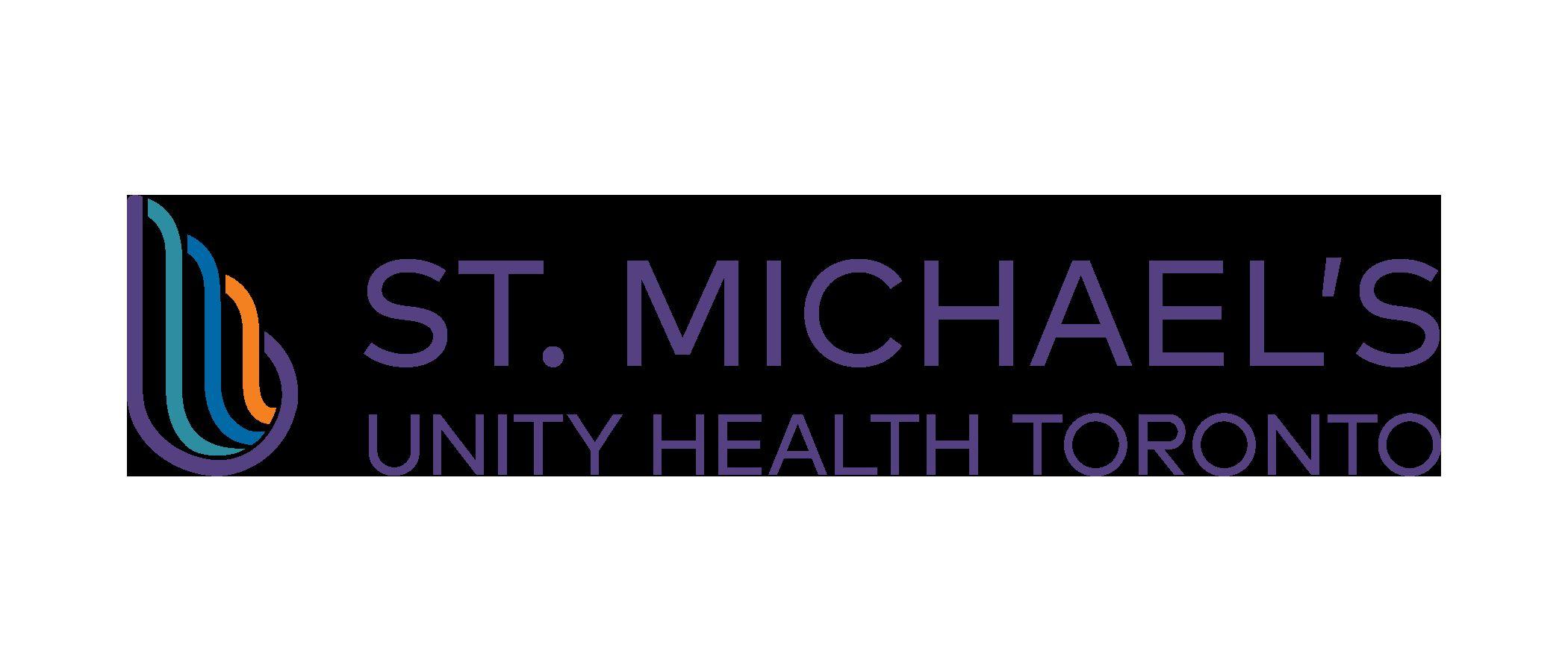

TakeBlackYour Health:*
Aconversationaboutprimary carewithAfrican,Caribbeanand BlackresidentslivinginGreater Toronto
July 2023















Aboutthe roundtable
OurCareisapan-Canadian conversationwithmembersofthe publicaboutthefutureofprimary care.TheprojectisledbyDr.Tara Kiran,afamilyphysicianand researchscientistbasedatSt. Michael’sHospital,UnityHealth Toronto,andtheUniversityof Toronto.
Therearethreephasestotheproject: anationalsurvey,provincialpriorities panels,andcommunityroundtables (seeAboutOurCareonpage14for details).
Inordertodesignahealthcare systemthatmeetstheneedsof everyone, theneedsof equity-deservingcommunitiesmust becentredintheconversation.The aimoftheOurCarecommunity roundtablesistolearnfrom communitiesthatarehistorically excludedorconsistentlyunderserved bytheprimarycaresystem.Two communityroundtableswerehosted inOntario,onetoengageFirst Nations,Inuit,andMétislivingin urbanandrelatedhomelands,and thisone,toengageAfrican, Caribbean,andBlack(ACB) communitiesintheeastendof TorontoandDurhamRegion.

OurCarepartneredwithTAIBU CommunityHealthCentre,Durham CommunityHealthCentre(DCHC), andtheBlackPhysiciansAssociation ofOntario(BPAO)todesignandhost thisroundtable.Eachofthese organizationsisregardedasaleader bythosewithinthehealthcaresector andwithinthecommunitiesthey serve.Theroundtablebuiltona pre-existingcollaborative relationshipbetweenthethree organizationsandontheir“Take BlackYourHealth”*symposiumheld inFebruary2023.Thesymposiumwas heldinordertobuildcollectivepower, toadvanceBlackhealthequityinthe Durhamregion,andtostrengthena partnershipbetweenthethree organizations.The“TakeBlackYour Health:OurCareCommunity Roundtable”servedasanotherphase inbothcampaignstoengageACB communitiesabouttheirprimary careneeds.
Anti-Blackracismissystemic throughoutCanadianinstitutionsand continuestonegativelyimpactACB communities.ThoughBlack Canadianshavebeenraising awarenessaboutanti-Blackracism forcenturies,untilrecently,ithas largelybeenignored.¹Racismdrivesa numberoffactorsthatcontribute



tostructuralhealthinequitiesforACB communities.Thisincludesmental healthaswellasphysicalhealth conditionssuchascardiovascular disease.²TheCOVID-19pandemic, whichdisproportionatelyaffected Blackandracializedcommunitiesin Canada,providedfurtherevidenceof thesestructuralinequitiesand relatedconsequencesforspecific communities.Forfrancophoneand newcomerACBcommunities, languageisanadditionalbarrierthat impedesaccesstoprimarycare.
TheTakeBlackYourHealth RoundtablewasheldonSaturday, July15,2023,attheDurham CommunityHealthCentre’sPickering location.Participantsmetforsix hourstolearnabouttheprimarycare system,sharetheirperspectives,and generateideasforchangeto addresstheirconcerns.Theywere joinedbytwoguestspeakers,Dr. NenaRae-WatsonandDr.TaraKiran, whospokeonthecurrentstateofthe primarycaresysteminOntarioand theOurCareproject,respectively. Eachpresentationwasfollowedbya questionandanswerperiod.
Participantsspentthebulkoftheday togetherinsmallgroups,sharing whathasandhasnotbeenworking fortheirhealth,anddiscussing possibleremediestotheirconcerns.
Thisreportreflectsthethemesand recommendationsidentifiedbythe roundtableparticipants.


WhoWeEngaged andWhy

Thisroundtablewasheldbecausethere areknowninequitiesinhealthandhealth careduetoanti-BlackracisminCanada. TheneedsofmanyAfrican,Black,and CaribbeanresidentsinOntarioarenot beingmetbythehealthcaresystem, andtheirvoicesandperspectivesare under-representedinmanypublic forums.
Thankstotherecruitmenteffortsofthe projectpartners,theroundtable participantswereadiversegroupof communitymembers.The14 participantsrepresentedabroadrange ofages,tenureinCanada,and languages.Theroundtableincluded newcomersfromAfricaandthe CaribbeaninadditiontoCanadian-born membersoftheACBcommunityinthe eastendofTorontoandDurham.
TheeventwasconductedinbothEnglish andFrench,withinterpretationand bilingualfacilitatorstoenable francophoneparticipation.Inorderto ensuretheroundtablewasaccessible, participantswereofferedstipendsand needs-basedsupport.
Theroundtablewasconvenedtoengage ACBcommunitymembersaboutbarriers toaccessingprimarycareandthe continuedimpactofanti-Blackracism onhealthinequities.
Healthinequitiesdonotrelateto biologicaldifferencesbutarethedirect resultofsystemicandinterpersonal racismandothersocialdeterminantsof healthsuchasincome,employment, andhousing.Racismcanalsoimpact theaccessand qualityofhealthcare received,contributingtonegativehealth outcomes.³Thepsychologicaland physiologicalstressduetoaccumulated experiencesofracismcanalsohavea varietyofadverseimpactsonracialized individuals.
Underscoringallofthisisthe underrepresentationofBlackphysicians intheprovince,theycompriseonly2.3 percentofpractisingphysicians comparedtothe4.5percentofBlack Ontarians.⁴ ACBOntarianswhoare newcomersorfrancophoneface additionalconsiderationswhen accessingcare,oftenwithlittlesupport. Duetothelackofhigh-quality, race-aggregateddata,thetrueharmsof systemicracismonACBcommunities aredifficulttomeasure.
Thisroundtablesoughttosurfacethe perspectiveandexperiencesofACB communitymembersineasternToronto andDurhamRegionandhearfirsthand howtheprimarycaresystemimpact theirhealthandwellbeing.Hearingwhat isworkingandimportantly,whatisn’t,for thehealthofACBcommunitiesis essentialtoeliminatesystemicbarriers tocare.
WhatWeLearned
Throughoutthesession,the participantsspenttimeinsmall groupdiscussions,sharingtheir experiencesandidentifyingthe needsoftheircommunities.
Participantswereprovidedwiththe followingpromptstoframetheir conversation:
Whatdoesthisdatameantous?
● Whatisworkingwelland positivelycontributingtoour health?
● Whatisn’tworkingwell?What barriersaffectaccessto primarycareforACB communities?
Improvingprimarycareforyour community
● Reflectonthethemesand recommendationsfromthe OurCarePrioritiesPaneland yourideasfromthismorning.
● Defineyourideastoimprove primarycareforyour community.
● Refinepanel recommendations,asrelevant.
Whatismosturgent?

● Basedontoday’s conversations,whatshould decision-makersprioritizeto improveprimarycareforyour community?Why?
Theirconversationshavebeen organizedintoThemesthathighlight theexperiencesandchallengesthey sharedandIdeasforChangethat detailpotentialsolutionssharedby participantsduringtheroundtable discussions.
Recurringthemes
SystemicandInterpersonal Anti-BlackRacism
Throughouttheday,the cross-cuttingthemenegatively affectingBlackhealthisthesystemic anti-Blackracismpervasive throughoutthehealthsystemand society.Participantsspokeatlength abouttheimpactthatanti-Black racismhashadontheirlivesasa wholeandtheirhealth.Theseinclude inter-generationaltraumaresponses fromanti-Blackracismas characterizedbyDr.JoydeGruy’s “Impactofpost-traumaticslave syndrome.”⁵ Participantsalsocited howacuteexperiencesofabusein variousaspects–spiritual,emotional, andsocial–havetheirown detrimentalimpactontheoverall healthofBlackindividuals.
Theimpactofsystemicracism extendswellintothehealth experiencesofAfrican,Caribbean, andBlack(ACB)communities. Participantssharedhowexperiences ofmicro-aggressionsandanti-Black racisminhealthcaresettingshave contributedtostigmainsome communities,resultinginalackof willingnesstoseekcare.Thelackof understandingofBlackexperiences andstereotypicalassumptionshave ledtomisdiagnosesandtraumatic

healthoutcomesformembersofACB communities.Thisisreinforcedbya healthcaresystemthatuseswhite bodiesasthedefaultand perpetuatesoutdatedstereotypes suchasBlackpeoplehavinghigher paintolerance.
Despitethesystemicracismfacedby ACBcommunities,participantsalso spokeabouttheresiliencyof Black-ledorganizationsandprogress madeinhealthcare.Citingrecent advocacysuchastheBlackLives Mattermovement,therehasbeena muchwideracknowledgmentof anti-Blackracismininstitutions.Black professionalsandadvocateshavea strongervoiceandhigherpresence inhealthspaces,makingpositive systemicchanges.Manycare providersarealsobecomingmore knowledgeableofBlackbodiesand theiruniqueneedswhen administeringcare.Aswell,Black patientsarebecomingmore knowledgeableoftheirrightsand ensuringtheirneedsarebeingmet. Theincreasedpresenceofracialized staffincaresettingshasalsobeen supportingthispositivemovement. Whileprogresshasbeenmadeto addressanti-Blackracisminhealth care,theeffectsofitstillimpact manyBlackcommunities.

LanguageBarriers
Acommonthemethroughoutthe roundtablewerethespecific linguisticbarriersfacedbythe francophoneswhenaccessingcare. Participantsdescribedwhatfeltlikea “disconnect”betweenCanada’s statusasabilingualcountryandthe realityofaccessingFrench-language healthservicesinOntario.Thelackof French-speakingstaff,fromintaketo physicians,hasmadeitdifficultfor patientstocommunicatetheir personalhealthneeds.Thishas resultedinpractitionersnot understandingpatients’needsand negativeexperiences.Participants discussedhowtherushed appointmenttimesalsocontributeto thelanguagebarriersthey experience.AsmanyBlack francophonesarealsonewcomersto Canada,itcanalsoaddtothe existingbarriersinsettlinginanew country.
Outsideoftheseclinicalormedical experiences,thelackoffrancophone staffinOntarioalsoextendsto broaderhealthprograms. Roundtableattendeesspokeofthe difficultyenrollinginhealth-related programs,especiallythosetargeted atyouth,duetotheirlackofFrench capacity.Thosethatdoofferservices inFrenchoftenhavefewerspaces
andlongerwaittimes.
ThisistrueforFrench-speaking specialistsaswell,withsome participantshavingtowaitovertwo yearstoaccessimportantcare servicesintheirownlanguage.
Toaddressthis,participants discussedsolutionssuchas advocatingformore French-speakingstaffandservices, creatingpathwaysfor foreign-trainedhealthprofessionals topractiseinCanada,andemulating bestpracticessuchasthededicated primaryhealthcareservicemodelat theTAIBUCommunityHealthCentre, whichisapartiallydesignatedFrench LanguageServiceagency.
AccesstoPhysiciansandMedical Care
Therewasastrongconsensus amongparticipantsaroundthe barriersthatthelackofavailabilityof physicianspose.Likemanyother peoplelivinginCanada,ACB communitiesinOntarioare experiencingprolongedwaittimesto accessgeneralhealthservices,and tofindfamilydoctorsandspecialist care.Forthoseseekingculturallysafe andlinguisticallyconcordantcare, thiswaitisevenlonger.Blackclients ornewcomerswantingtospeakwith

careproviderswhounderstandtheir culturalorlinguisticexperiencesoften faceprohibitivewaittimesduetoa lackofracializedstaff.
Participantsspokeaboutthe additionalchallengesexperiencedby thoseinruralcommunitieswhen accessingcare.Inadditiontothelack ofavailablecareproviders,issues suchaslackoftransportationcreate additionalbarriers.Thiscanresultin negativehealthoutcomesas people'smedicalneedsgo unchecked.
HealthProfessionalsfromOther PartsoftheWorld
Tiedtothelackofavailabilityof healthcarestaffwastheconcern overthedifficultiesfacedby internationally-trainedhealth professionals.Participantsdiscussed barriersfacedbyhealthprofessionals whoimmigratedtoCanadaand wanttopractisehere.Thisincludes bridgingprogramsinwhich professionals'accreditationand knowledgearenotbeingvaluedin Canada.Someparticipants describedthisasaformof discrimination,whereknowledge fromWesterncountriesisprioritized overequivalentexperiencefromthe
GlobalSouth.Participantssuggested thatreducingthebarriersfor newcomerhealthcarestaffto transfertheircredentialscouldhave atangiblebenefittothecommunity byaddingmorecapacityand diversitytothehealthsystem.
BarrierstoCareforNewcomers
Theroundtablediscussedatlength theuniquechallengesfacedby newcomers,particularly francophones,inaccessingcare. Participantscitedthedifficulties navigatingthehealthcaresystemin anewcountry,especiallywhenoneis stillunfamiliarwithCanada’s institutionsasawhole.Whilesome peopleareabletorelyonfamilyor socialworkersupporttolinkthemto services,othersfeelleftontheirown withlittleorientationorresources.
Thelackofeducationonpatient rightswasanotherconcernbrought upbytheroundtable.Assome newcomersarenotproperlyoriented tothehealthsystem,theymightalso notbeawareoftheirrightsasa patientintheCanadianhealthcare system.Thiscouldresultin inadequatecareornegative experienceswhichmakethem hesitanttoreturn.Andasnoted earlier,languagebarriersalsopose

additionalchallenges.Healthcareis personalandcomplex,and individualsneedtobeableto communicateeffectivelyinorderto beabletoconveytheirneeds.
Income
Barriersrelatedtoincomewere frequentlyreferencedbyparticipants, especiallynewcomers.Forthosewho wereabletoaccesscare,thecostsof prescribedmedicationtotreatillness werecitedasanadditionalbarrierto healthyoutcomes.Participants statedhowitwasdifficulttoacton theadviceoftheircareprofessional whentheycouldnotafford prescribedmedications.Theyalso spoketothelackofsubsidizationof medication,orsupporttoconnect themtoservicessuchasTrillium Foundation.Roundtableparticipants alsospoketothelackofcoveragefor alternativeformsofhealing therapies,takingawaytheiragency onhowtolookaftertheirhealth.
Newcomersatvariouspointsofthe settlementprocessexperience increaseddifficultyduetolongwait timestoevenfindwork,letaloneto affordmedicationwithoutsupport. Whilemanynotedthatoptionssuch astheCommunityHealthCentre modelandnewcomeragencieswere
effective,morearerequiredtomeet demand.
ValueofCommunityHealthCentres
Acrossthesmalldiscussiongroups, participantsspokeaboutthepositive impacttheCommunityHealthCentre modelhadontheircommunities.
CitingtheirexperiencesatTAIBU, participantsreferencedpractices suchasthe‘activeoffer’ofprimary carebeingprovidedinFrenchand timespentonrelationshipsasones toemulate.Black-servingCHCswere discussedasremediestohelp addressracismandsystemicbarriers tocare.Theadaptedculturethat fostersrelationshipsinadditionto staffthatrepresentandunderstand thecommunityhelptocreatetrustin healthcareproviders.
Participantsdiscussedhowthe integratedservicesatCHCsmakeit easiertoconnecttospecialists,such asdentists,whoareabletoengage withthemculturallyandlinguistically.
TheyalsodiscussedhowCHC practitionershavemore understandingofmedicalconditions experiencedbynewcomers,suchas tropicaldiseases.Thishelpstoease possiblecommunicationbarriers withnewcomerswhomightbe

dealingwithillnessesnotcommonin Canada.Overall,participants believedthattheCHCmodelisone thathasbeeneffectiveinimproving healthoutcomesandaddressing systemicbarriersfacedbyACB communities.
DistrustinWesternizedMedicine
ThestigmawithinsomeACB communitiesagainstWestern modelsofhealthcarewas referencedbysomeparticipantsasa contributingfactortonegativehealth outcomes.Impactedbysystemic racisminthehealthcaresystemand individualnegativeexperiences, somemembersfromACB communitiesarehesitanttoseekout care.Thiscanhavean intergenerationalimpact,with childrensometimesrepeatingtheir parents'actions.
Intersectionalidentitiesmeanthat somemembersofthecommunity faceadditionalstigmarelatingto accessinghealthcare.Thosewhoare alsomembersofthe2SLBTQIA+ communities,orlivewithdisabilityor chronicconditionssuchasHIV,can facestigmafromcommunity memberswhentryingtoaccess relevantcare.Theroundtable participantsdiscussedhowpractices suchasfamily-centredapproaches tohealthcarehaveenhanced comfortandpromotedwellnesswhile reducingstigma.


Ideasforchange
Combatsystemicandinterpersonal Anti-BlackRacisminthehealthsystem throughthefollowingactions:
● Mandateculturalsafetytrainingon ACBcommunities,including educationonsoftskillssuchas bedsidemanner,critical reflectivenessandemotional intelligence,forallhealthcare workers;
● Ensurethathealthservice organizationsareintegratingalens thatworkstoaddressanti-Black racismandtransphobia,andthat valuesthevoicesof equity-deservingcommunities;
● IncreasethenumberofBlackcare professionalsthrough post-secondaryprogramsby expandingaccesstoracialized, francophone,andnewcomer studentsinhealthstudies.
Buildonthebestpracticesof CommunityHealthCentresby:
● Increasingfundingfor community-specifichealth organizationsthathirestaffwith livedexperienceasnewcomersand expertiseinprovidingcarefor diversecultures;
● Advocatingfordiversefunding modelsforphysiciansoutsideof fee-for-service.Thiswillallowcare physicianstotakemoretimewith

theirpatients(similartoCommunity HealthCentres)andprovide higher-qualitycare;
● Furtherexpandingintegratedcare modelstoallowforgreateraccess tootheressentialcareandhealth professionals,e.g.dentists.
Addresslanguagebarriersthatprohibit francophonesfromaccessingcareby:
Advocatingforgreaterintegrationof French-languageoptionsinallhealthcare settings,e.g.translationservices;
● Increasingthenumberof French-speakingstaffand language-specifichealthservicesin allOntariohealthsettings.
Reducethegapsinservicedeliveryand accesstocarethroughthefollowing actions:
● Empoweringpatientstotakecontrol oftheirhealthbyallowingthemto accesstheirowndataonline,such as:
○ Testresults;
○ Paperworkforservicessuch asOntarioDisabilitySupport Program(ODSP);
○ Educatingindividualsover theirrightstotheirdata underthePersonalHealth InformationProtectionAct (PHIPPA);
● Reducingtheburdenof navigatingthehealthcaresystem throughgreaterpromotionof programssuchasSystem Navigators.Thisshouldinclude targetedservicesthatassist newcomersandfrancophones:
○ Ensureprogramsinclude trainingonpatientrights andadvocacyresources suchastheBPAO’sBlack Health&Well-Being Initiative;⁶
● Creatingandpromoteadditional financialaidprogramsforthose whoareunabletoaffordtheir prescriptionmedication.
Addressthelackofhumanhealth resourcesbyremovingthebarriers facedbyforeign-trainedprofessionals by:
● Creatingstreamlinedprogramsto reducethetimetotransfer credentialsfornursesandother healthprofessionalstoworkin Canada;
● Allowingforeign-trained professionalstodemonstratetheir skillsthroughcontrolled, workplace-experiencedprograms andelevatedlicensing qualificationexams.
https://bpao.org/bhvi/

Fosterasenseofaccountabilityand recourseinthehealthsectorby:
● Establishingaconcretetimeline andfeedbackfromgovernmental bodiestothechangesproposed regardingtheOurCareproject:
○ Ensuringthattheresponse toeachrecommendation includestransparencyon timelines,whois responsiblefor implementation,plain languagedescriptionof theirplannedchange,and safetyfrompoliticalshifts;
● Ensuringtherearepublicrecourse mechanismsforpatientswho experienceracismand maltreatmentwhenaccessing healthservices.
Acknowledgments
TheOurCareprojectteamgratefullyacknowledgestheleadershipofour communitypartnersinthedevelopmentandhostingoftheTakeBlack YourHealthRoundtable.Theprojectteamthanksthosewhovolunteered theirtimetoparticipateintheroundtableandworktowardsimproving carefortheircommunities.TheTakeBlackYourHealthRoundtablewas madepossiblebythecontributionsof:
KimLepine,Director,HealthPromotion&CommunityDevelopment ServicesandFrancisGarwe,ChiefExecutiveOfficer,Durham CommunityHealthCentre
DurhamCommunityHealthCentre(DCHC)isaregisteredcharitable organizationprovidingavarietyoffree,communityprogramsand servicesincluding:healthpromotionandwellnessprograms;primary care,counselingandmentalhealth;andfundraisingeventswhichinclude developingcharitablepartnerships/sponsorshipstofundprograms.
LibenGebremikael,ExecutiveDirector,TAIBUCommunityHealthCentre
TAIBUCommunityHealthCentreoffersBlack-identifyingclientsfrom throughouttheGreaterTorontoAreaaccesstoprimarycare,health promotionanddiseasepreventionprogramsinaculturallyaffirming environment.
ChenaiKadungure,ExecutiveDirector,BlackPhysicians’Associationof OntarioandDr.DanielleBrown-Shreves,ExecutiveMedicalDirector, RestoreMedicalClinicsandBlackHealthandVaccineInitiativeLead PhysiciansTeam,BPAO
TheBlackPhysicians’AssociationofOntario(BPAO)wasfoundedin2007 followinganinfluxofBlackphysiciansintheprovincecominginto practiceatthetimeandincorporatedasanot-for-profitin2015.The organizationwascreatedtofocusonmedicineandcontinueadvocacy forimprovingthehealthofpeopleinBlackcommunitiesinOntario.They haveworkedtoimplementinitiativesthatwouldencourageandfacilitate Blackyouthtopursueacareerinmedicine.

GuestPresenter:PrimaryCare101
Dr.Nena-RaeWatson,MA,MDCCFP(AM) StaffPhysician,St.Michael'sHospital
Dr.Nena-RaeWatsonisastafffamilyandaddictionmedicinephysicianatSt Michael’sHospitalandstaffaddictionmedicinephysicianatTorontoWestern HospitalinToronto.Dr.Watsoncompletedherallofhermedicaltrainingatthe universityofTorontoincludingmedicalschool,familymedicineresidencyandan addictionmedicinefellowshipyear.PriortostartingmedicalschoolDr.Watson completedaMaster’sofArtsatDalhousieuniversity–herresearchexploredthe impactofracialandeconomicmarginalizationonthepregnancyexperiencesof BlackwomeninHalifax.
RoundtableTeam
TheACBRoundtablewasdevelopedandmanagedbyMASSLBP.
MASSisCanada'srecognizedleaderinthedesignofdeliberativeprocessesthat bridgethedistancebetweencitizens,stakeholders,andgovernment.Formorethana decade,MASShasbeendesigningandexecutinginnovativedeliberativeprocesses thathelpgovernmentsdevelopmoreeffectivepoliciesbyworkingtogetherwiththeir partnersandcommunities.
OurCarePrincipalInvestigator
Dr.TaraKiran
Familyphysician,St.Michael'sHospitalAcademicFamilyHealthTeam; Scientist,MAPCentreforUrbanHealthSolutions,St.Michael'sHospital,UnityHealth Toronto;FidaniChairofImprovementandInnovation,UniversityofToronto
NationalProjectDirector
JasminKay
Director,MASSLBP
Moderator
ChimwemweAlao
SeniorConsultant,MASSLBP
Interpreter
AkaSébastienKouakou
Facilitators
AhmatNokourBrahim
NicolePerryman
AhmatHasseaneTchanaye

Photography
YuriMarkarov,UnityHealthToronto

AboutOurCare

OurCareisapan-Canadianconversationwitheverydaypeopleaboutthefuture ofprimarycare.TheprojectisledbyDr.TaraKiran,afamilydoctorand renownedprimarycareresearcherbasedinToronto.OurCarehasthreestages:
1. NationalResearchSurvey
ThesurveywasonlinefromSeptember20toOctober25,2022.Morethan 9,200Canadianscompletedthesurvey,sharingtheirperspectivesand experiences.VoxPopLabsco-designedandexecutedthesurvey.
2. PrioritiesPanels
PrioritiesPanelswereheldinfiveprovinces:NovaScotia,Quebec,Ontario, BritishColumbia,andManitoba.MASSLBPco-designedandexecutedthe panelswithOurCareadvisorsandlocaldeliverypartners.
3. CommunityRoundtables
Communityroundtableswerehostedineachofthefiveprovinces, focusingonhistoricallyexcludedgroupsthatwedidnothearenoughfrom duringstages1and2.MASSLBPco-designedandexecutedthe communityroundtableswithOurCareadvisorsandlocalcommunity organizations.

OurCareProjectPartners

OurCareisfundedby:
HealthCanada
HealthCanadaistheFederaldepartmentresponsibleforhelpingCanadians maintainandimprovetheirhealth,whilerespectingindividualchoicesand circumstances.Productionofthisdocumenthasbeenmadepossiblethrougha financialcontributionfromHealthCanada.Theviewsexpressedhereindonot necessarilyrepresenttheviewsofHealthCanada.
MaxBellFoundation
MaxBellFoundationbeganmakinggrantstoCanadiancharitiesin1972.Today, theFoundationsupportsinnovativeprojectsthataredesignedtoinformpublic policychangeinfourprogramareas:Education;Environment;Health&Wellness; andCivicEngagement&DemocraticInstitutions.TheFoundationalsodelivers thePublicPolicyTrainingInstitute,aprofessionaldevelopmentprogram designedtohelpparticipantsmoreeffectivelyengageinthepublicpolicy process,andPolicyForward,afuture-orientedspeakerseriesthatbringsthought leaderstogethertodiscusstheintersectionsofpolicy,technology,and innovation.
StaplesCanada—EventheOddsCampaign
StaplesandMAPhavecometogethertocreateEventheOdds:aninitiativeto raiseawarenessofinequityinCanadaandtohelpbuildvibrant,healthy communities.Thepartnershipisbasedonthesharedbeliefthateveryone shouldhavetheopportunitytothrive.EventheOddsfundsresearchand solutionstohelpmakethefuturefairforeveryone.Learnmoreat staples.ca/eventheodds.

OurCareSupporters

OurCareisbasedat:
MAPCentreforUrbanHealthSolutions
MAPCentreforUrbanSolutionsisaresearchcentrededicatedtocreatinga healthierfutureforall.Thecentrehasafocusonscientificexcellence,rapid scale-upandlongtermcommunitypartnershipstoimprovehealthandlivesin Canada.MAPisbasedatSt.Michael’sHospitalinToronto.
St.Michael’sHospital,UnityHealthToronto
St.Michael’sHospitalisaCatholicresearchandteachinghospitalindowntown Toronto.ThehospitalispartoftheUnityHealthTorontonetworkofhospitalsthat includesProvidenceHealthcareandSt.Joseph’sHealthCentre.
OurCareissupportedby:
DepartmentofFamily&CommunityMedicine,UniversityofToronto
TheUniversityofToronto’sDepartmentofFamily&CommunityMedicineisthe largestacademicdepartmentintheworldandhometotheWorldHealth OrganizationCollaboratingCentreonFamilyMedicineandPrimaryCare.
St.Michael’sFoundation
Establishedin1992,St.Michael'sFoundationmobilizespeople,businessesand foundationstosupportSt.Michael’sHospital’sworld-leadinghealthteamsin designingthebestcare–when,whereandhowpatientsneedit.Fundssupport state-of-the-artfacilities,equipmentneeds,andresearchandeducation initiatives.BecauseSt.Michael'sFoundationstopsatnothingtodeliverthecare experiencepatientsdeserve.

AdvisoryGroups
OurCareisguidedbyseveralnationalandprovincialadvisorygroups comprisingclinicalleaders,representativesfromprofessionalorganizations, researchers,healthsystemadministrators,andpatients.Theadvisorygroups havehelpedshapeeachphaseoftheinitiative.TheOurCareOntarioProvincial AdvisoryGroupprovidedinputintopopulationsoffocusforthetwocommunity roundtablesinOntarioandmembershelpedmakerelatedconnectionstolocal communityorganizations.Afulllistofadvisorygroupmembersisavailableon theOurCarewebsite.

TolearnmoreaboutOurCare,pleasevisitourcare.ca.
OurCareisfundedby


OurCareisbasedat OurCareissupportedby








